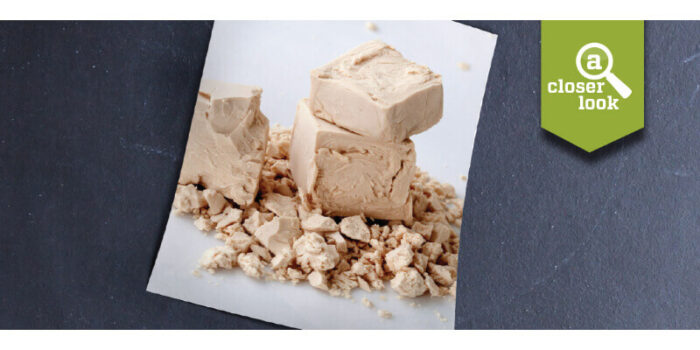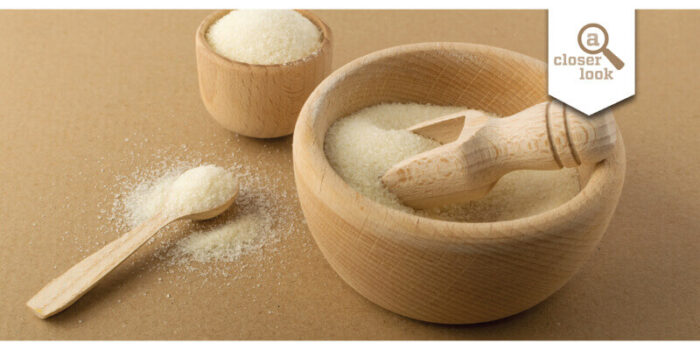Centuries ago, one of the staple items that was found in most homes was olive oil. Olive oil was used to light up the house, to soften and perfume skin and of course for human consumption. Often meals in those days consisted of bread dipped in olive oil.
Olive oil is relatively easy to make. The olives are pressed so that the oil flows out of the fruit. Well, actually it is olive juice that flows out of the olive. But, after leaving the juice standing for some time, the oil will rise to the top (since it is lighter), while the water will settle at the bottom. Afterwards, the oil is skimmed off the top. Nowadays it is easier to separate the oil by spinning it in a centrifuge.
This process is only able to extract a minimal amount of oil from the olives. At some point in time, producers realized that if they were to grind the olives and then squeeze them using heavy grindstones and wooden beams, more liquid would be expressed from the olives.
Throughout the years, olive oil was known to be kosher. After all, what could be wrong with the oil? It was 100% pure oil that came from an olive!
In the 19th century, and later on as they perfected the process (in 1960), companies began producing oil from vegetables. These vegetables include corn, soybeans, peanuts, hazel nuts, walnuts, sunflower seeds, cotton seeds, cocoa butter, coconuts, and palm. Though many of the above mentioned are not really vegetables, we use the term broadly, as the processing is similar. So how can one extract oil from these vegetables? They cannot be squeezed like olives!
Apparently, if you use a lot of heat and pressure (expeller pressing), or with the aid of chemical solvents like hexane (chemical extraction), you can express oil out of vegetables. This extracted oil is often overly acidic, does not look presentable and may have an “off” smell. To remedy this, the companies usually add chemicals to neutralize the acidity and then separate and remove them. They then bleach the oil to improve the color, and finally they deodorize it to remove the smell. Since these oils are processed with heat and additives, they would definitely require supervision to ensure that all of the additives are kosher, and that the machinery was not contaminated by unkosher (tallow) productions.
Accordingly, the accepted kashrus policy was that all vegetable oils required reliable kosher supervision, while olive oil did not require hashgocha. This policy was in effect until the manufactures realized that they could produce additional oil from olives if they would use heat extraction. Consequently, after they finished using the cold press on the olives, the remaining pulp would be heated and refined (similar to the processing of vegetable oil), to produce additional oil. This oil was called pomace olive oil, and is often used in sardine cans. Of course this oil would require supervision, just as all of the vegetable oils require supervision, due to the heating process.
Now that even olive oil was produced with heat, how could anybody tell whether they had cold pressed olive oil, or heat processed olive oil? Enter the International Oil Council. In 1991 this respected group began certifying olive oil and assigning various grades, as follows:
1.Virgin olive oil refers to 100% pure cold pressed olive oil (and does not require kosher supervision).
2.Extra light olive oil is the name for olive oil that has been processed by heat and refined (and requires kosher supervision).
3.Pure olive oil is a combination of virgin olive oil and refined olive oil (and therefore requires kosher supervision).
It is interesting to note the different perspective of today’s society and that of the Torah in the time of the Mishkan. Rabbi Yirmiyaho Kaganoff in his article titled “The Ins and Outs of Olive Oil” quotes the Midrash Tanchuma (Parshas Tetzave 6) who points out that nowadays the superior oil is used for human consumption, while the inferior oil is used for lighting. Yet in Parshas Tetzave, the Torah tells us “Kosis Lamaor”, the oil used for the Menorah must be the purest oil, while the oil used for the Mincha – meal sacrifice can be of a lesser quality. (Possibly this can be attributed to the Menorah being the source of spirituality and inspiration for the Jewish community. Therefore it must be totally free of any and all impurities.)
To further complicate matters, virgin olive oil may be sub divided to four categories:
a. Extra virgin olive oil, which means that the olive oil has an acid content of less than one percent. This is considered to be excellent, first quality. Note: there is a limited amount of such oil available.
b. Virgin olive oil has an acid level of less than two percent. This oil has a good taste, but not excellent.
c. Ordinary virgin olive oil has a greater than two percent level of acidity. This oil has an inferior taste, and usually ends up being refined.
d. Virgin lamp oil has a severe off taste and is considered inedible. This oil is only used for lighting purposes.
Accordingly, all of the virgin oils may be accepted without any supervision, while the light olive oil, the pomace oil and the pure olive oil would require supervision. There is a problem though, who is enforcing that these standards are being kept? There are few countries that have legally binding laws requiring that the name virgin may only be used by cold pressed oil. Most of the countries (including the United States of America) have no laws about the various standards of olive oil. By and large these are voluntary standards, that companies on their own may decide whether to enforce. Most olives are grown and processed in Crete, Greece, Italy, Morocco, Spain, Turkey, Tunisia, and Israel. These countries have various levels of enforcing the olive oil standards. Even if the label on the bottle says “product of Italy”, this may refer to the bottling of the oil (which may be transported in large containers from other countries). We remain with the question, who is enforcing that the standards of the olive oil are accurate?
To make matters worse, years ago there were allegations that some companies had compromised on the integrity of their standards of olive oil. Yet, at that time, most kashrus agencies did not consider this a real problem. This was because the allegations were not substantiated. In addition, most of the countries in which olive oil is made do not produce any tallow. Also, most reputable companies would not risk damaging their reputation, by falsifying the International Olive Oil Council’s standards. OK mashgichim have been visiting our certified facilities in Italy for years and have never found any adulterated oil or false grading during their many inspections.
This brings to mind the well known Midrash (Shmos Rabbo Parshas Tetzaveh Chapter 36) “Mah Zayis Hazeh K’shekois-shim Oisoi Hu Moitzee Shamnoi…..”. Just like the way we extract oil from an olive, is by applying much pressure, so too when a lot of pressure is applied to Jewish people, they too produce amazing results. The Jewish people have gone through much squeezing throughout the ages. Many of us personally also feel tremendous pressure at times. The Midrash (while not rationalizing our pain and suffering), tells us, that this may bring us to a more meaningful life! Often the difficulties that we experience, force us to find hidden strengths within ourselves. Often this experience leads us to greater understanding and sensitivity.
It is interesting that most kashrus organizations did not insist on requiring kosher supervision on olive oil. In our article we have explored some of the technical issues involved, yet there is a rich and fascinating history in permitting the use of olive oil without supervision.
In the first chapter of Daniel, we are told that Nevuchadnetzer tried to raise Jewish children in his palace. He gave them good food to eat, but Daniel refused to eat it. The Gemara (in Mesaches Avoida Zorah 35b-36a) brings down two opinions. Rav says that Daniel decreed that oil that comes from a non Jew is prohibited. His reason was because he felt that if you begin eating food from a non Jew, it may bring closer relations with them. This may ultimately lead to intermarriage. This prohibition also applies to any Jewish person. Shmuel’s opinion is that Daniel’s prohibition was only a stringency he took for himself (possibly as he felt that he was being consecrated to an idol for which he was named Beltshatzar). The decree does not apply to any others.
The Talmud further tells us that the students of Shammai and Hillel (as part of their 18 gezeiros in Mesaches Shabbos) decreed that oil from a non Jew is prohibited. In later generations, Rabbi Yehudah Nesiah (and his Beis Din) nullified the decree. The Gemara asks, “How were they able to nullify this decree? We have a ruling that once a decree has been made and accepted, it cannot be nullified by a latter Beis Din unless they are greater in quantity and quality.” (We assume that any later court is inferior to a previous court.) The Gemara answers that in this case the decree was never accepted by most of the community. Since it never took hold, it may be nullified. According to Shmuel’s opinion the original reason for the decree was that the olive oil was held in vessels that were used for non- kosher foods. Later on this decree was nullified since any of the non-kosher flavors emitted from the walls of the vessels would not benefit the oil, rather it would ruin its flavor.
The Talmud Yerushalmi relates an incident where Rav did not want to use non Jewish olive oil even after Rabbi Yehudah Nesiah (the grandson of Rabbi Yehudah Hanassi,see Rashi, Tosafos) nullified the decree. Shmuel threatened Rav that if he would not use the oil, he would be considered a “Zakain Mamrai”. Rav relented and used the oil. The Rambam concludes that even if the olive oil is cooked by a non Jew it is permitted. We are not concerned about non-kosher vessels (as it would only ruin its quality), nor the prohibition of Bishul Akum (since it can be eaten raw). In the Rema’s days there was an issue of the olive oil barrels being smeared with non-kosher oils. The Rema concludes (Shaalos U’Tshuvois #52) not to be stringent in this case. The Aruch Hashulchon (Yoreh Deah Siman 114, s’if 18) says that in his days there was a concern that non-kosher oil was being mixed in the kosher oil. At the end he says, since they tested the oil chemically and said that it was pure, you may use that oil. This may also be the reason that many rabbis hesitate to suspect olive oil of being not kosher.
Rabbi Hendel is a member of the OK Kosher Vaad HaKashrus.


 EN
EN  ZH
ZH  KR
KR  BR
BR  ES
ES  IN
IN  IL
IL 




